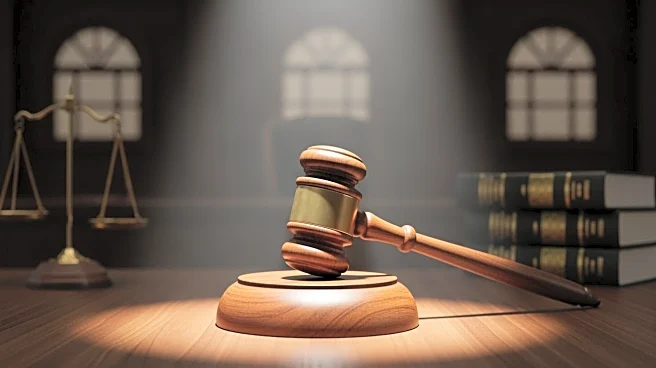What's Happening?
In response to a lawsuit filed by unions, a federal judge has temporarily blocked the Trump administration from proceeding with layoffs of federal workers during the ongoing government shutdown. The administration had
issued reduction-in-force notifications to over 4,000 employees, citing the shutdown as a reason for the cuts. Judge Susan Yvonne Illston ruled that the administration's actions were contrary to the law, emphasizing that such measures cannot be implemented in a nation governed by laws. The decision prevents the layoffs from taking effect immediately, providing temporary relief to affected workers.
Why It's Important?
The judge's ruling is a critical intervention that safeguards federal employees from abrupt job losses during a politically charged shutdown. It highlights the judiciary's role in ensuring that executive actions comply with legal standards and do not overreach authority. The decision may influence how future administrations handle workforce reductions during shutdowns, potentially leading to more cautious approaches. It also underscores the importance of legal checks and balances in maintaining government accountability and protecting workers' rights.
What's Next?
The temporary restraining order will remain in place as the legal proceedings continue. The Trump administration may explore options to appeal the decision or revise its approach to comply with legal requirements. Unions and advocacy groups will likely remain vigilant in challenging any further attempts to reduce the federal workforce during the shutdown. The case's outcome could set a precedent for handling similar situations in the future, affecting government employment policies and shutdown strategies.
Beyond the Headlines
This case raises broader questions about the ethical implications of using government shutdowns as a political tool, potentially impacting public employees' livelihoods. It highlights the tension between executive authority and legal accountability, as well as the potential consequences of political decisions on government stability and public trust. The long-term effects of such actions could influence perceptions of government legitimacy and the role of the judiciary in safeguarding democratic principles.









